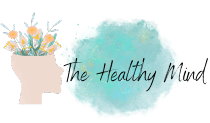Do you find yourself reaching for a pint of ice cream during a tough day or scarfing down an entire bag of chips after a stressful meeting? You’re not alone. Many people turn to food as comfort when dealing with emotions such as depression, anxiety, and stress.
But is this just a temporary fix, or can it actually worsen our mental health in the long run? In this blog post, we’ll be taking a closer look at the relationship between food and depression and uncovering some surprising truths about how what we eat affects our mood. So buckle up, grab a snack (or maybe not?), and let’s dive in!
Introduction to the Relationship between Food and Depression
When it comes to depression, there are many possible causes and factors that contribute to the condition. One of these potential causes is food. The relationship between food and depression is complex, and scientists are still working to understand all of the ways that diet can impact mental health.
While there is no one-size-fits-all approach to managing depression, paying attention to your diet and making sure you are getting the nutrients you need may help alleviate some symptoms. Conversely, certain foods have been linked to increased risk of depression. So, if you are struggling with depression, it may be worth considering making some dietary changes.
Of course, food is just one piece of the puzzle when it comes to managing depression. If you are struggling with this condition, it is important to seek professional help. A mental health professional can provide you with guidance and support as you work to heal and find healthy coping mechanisms.
Different Types of Foods that Affect Mood
There are different types of foods that affect mood. Some foods can improve mood, while others can worsen it. Here are some examples:
- Complex carbs like whole grains can increase serotonin levels, which can improve mood.
- Foods rich in omega-3 fatty acids like salmon and nuts can also help to improve mood.
- Caffeine and chocolate may provide a temporary lift to mood, but can also lead to a crash later on.
- Junk food and processed foods can worsen mood and lead to feelings of depression.
- Eating a balanced diet with plenty of fresh fruits and vegetables is the best way to maintain a healthy mood.
How Nutrition Affects Mental Health
The relationship between nutrition and mental health is complex. While a healthy diet can improve mood and reduce the risk of developing chronic diseases, poor nutrition can contribute to the development of mental health problems such as depression.
Depression is a serious medical condition that affects millions of people around the world. It is characterized by persistent feelings of sadness, hopelessness, and worthlessness. Depression can lead to a variety of problems, including difficulty concentrating, sleeping, and making decisions. Poor nutrition can make these symptoms worse.
Certain nutrients are essential for maintaining mental health. For example, omega-3 fatty acids are thought to help protect against depression by reducing inflammation in the brain. omega-3s are found in fatty fish such as salmon, mackerel, herring, sardines, and tuna. They are also available in supplement form.
Another important nutrient for mental health is magnesium. Magnesium helps to regulate mood and has been shown to be effective in treating depression. Foods rich in magnesium include dark leafy greens, nuts, seeds, beans, whole grains, and dark chocolate.
Eating a balanced diet that includes plenty of fresh fruits and vegetables, whole grains, lean proteins, and healthy fats is the best way to ensure adequate intake of these important nutrients. In addition to eating a healthy diet, getting regular exercise and spending time with loved ones can also help improve mental health.
Symptoms of Depression and How Diet Can Help
It is estimated that one in ten Americans suffer from depression. According to the National Institute of Mental Health, “Depression is a common and serious medical illness that negatively affects how you feel, the way you think and how you act.” Depression symptoms can include feeling sad or down, losing interest in activities once enjoyed, insomnia or oversleeping, fatigue, changes in appetite resulting in weight gain or loss, feelings of worthlessness or guilt, difficulty concentrating or making decisions, and thoughts of death or suicide.
The Dietary Approach to Stop Hypertension (DASH) eating plan has been shown to help reduce symptoms of depression. The DASH diet is rich in fruits, vegetables, whole grains, low-fat dairy, beans, lean protein sources, and nuts and seeds. It is moderate in salt and limits red meat, sweets, added sugars and fat. The DASH diet has been shown to improve blood pressure control as well as other health conditions such as diabetes and high cholesterol.
A study published in the Journal of Nutrition found that people who followed the DASH diet had a lower risk of developing depression than those who did not follow the diet. Another study published in PLOS One found that people who eat a diet high in processed foods and refined sugars are more likely to experience symptoms of depression.
There are many possible causes of depression including genetic predisposition, chemical imbalance, significant life events such as grief or loss, and chronic stress. While medication may be important in some cases, lifestyle modifications can also be beneficial. Eating healthy foods such as those found in the DASH diet, getting regular exercise, and developing healthy coping skills are all strategies for managing depression symptoms. A balanced diet including nutrient-rich foods can play an important role in overall mental health and well-being.
Healthy Eating Tips for Mental Wellbeing
When it comes to maintaining mental wellbeing, what you eat is just as important as how much you eat. A healthy, balanced diet can help improve your mood and keep your energy levels up, while an unhealthy diet can contribute to feelings of depression and low energy. Here are some tips for eating for mental wellbeing:
- Make sure you’re getting enough nutrients. Depression has been linked with deficiencies in certain nutrients, including omega-3 fatty acids, vitamin D, and magnesium. Include foods rich in these nutrients in your diet or take supplements if necessary.
- Eat regular meals. Skipping meals can lead to low blood sugar levels, which can worsen mood and energy levels. Eat three regular meals each day and space them out evenly throughout the day.
- Avoid processed foods. Foods that are high in sugar, salt, and unhealthy fats can exacerbate feelings of depression and anxiety. Instead, focus on eating whole foods like fruits, vegetables, lean protein, and healthy fats.
- Consider your food triggers. There may be certain foods that trigger or worsen your symptoms of depression. If this is the case, avoid those foods or eat them in moderation.
What to Do if You Feel Like Eating Your Feelings
If you’re feeling depressed, you may be tempted to reach for comfort foods. But there are other, healthier ways to cope with your feelings.
Here are some tips for what to do if you feel like eating your feelings:
- Understand why you’re reaching for food. Are you really hungry, or are you trying to satisfy an emotional need? If it’s the latter, try to find a non-food way to soothe yourself, such as reading, listening to music, or spending time with friends or family.
- Make sure you’re eating healthy foods. Depression can lead to unhealthy eating habits, so it’s important to make sure you’re still getting the nutrients your body needs. Fill up on fruits, vegetables, and whole grains, and limit processed and sugary foods.
- Keep track of your eating habits. If you find yourself overeating or bingeing when you’re feeling down, keep a journal of what you eat and how you’re feeling afterward. This can help you identify patterns and figure out what triggers your bad eating habits.
- Seek professional help if necessary. If your depression is severe or doesn’t seem to be improving with self-care, talk to your doctor or a mental health professional about treatment options.
Conclusion
Eating your feelings is a very real problem that should not be overlooked. It is essential to take steps to identify if you are self-medicating with food and what emotions or events might prompt these cravings. Once identified, the root cause can be addressed through counseling, lifestyle changes, mindfulness exercises, and other strategies.
All of these techniques will have an accumulative effect in leading to overall better wellbeing both physically and mentally for those struggling with depression linked to disordered eating habits.





Add Comment